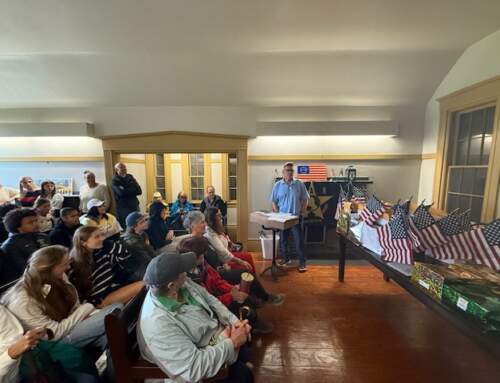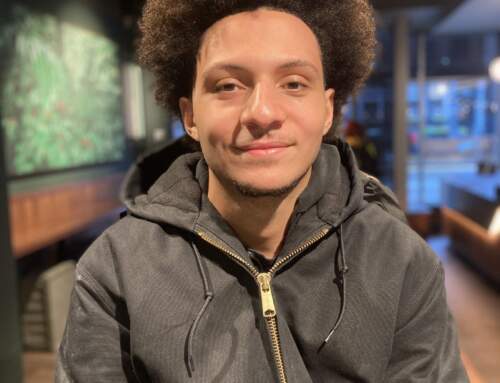
Sherlock’s Last Case
By Richard Campbell
This past week “Sherlock’s Last Case” opened at the Huntington Theatre main stage with a tight cast and high production values to bolster a script laden with verbal hijinks and very British humor. While a little subtler than Monty Python, there is a decidedly campy strategy behind this amalgam of familiar Sherlockian scenarios, but good taste does not allow me to reveal the central conceit of the play. Suffice it to say this rendering by Charles Marowitz turns the traditional Holmes adventures inside out via a clever psychological ploy- creating a parody that usurps all the accepted conventions of the time.
The direction by Maria Aitken is near the polish of the best productions ever at the Huntington. Refined to a degree and yet still hurriedly pushing the envelope to score comic points, this witty confection pleases on multiple levels. Through a series of convoluted plot twists the irony in this play does rely upon a certain knowledge of the original stories, as well as the relationship between Holmes and Watson. Many of the jokes are made for a British audience, but the preview saw most of this American audience getting it. The bubbly jokes float like dry champagne in crystal glasses to the fizzy sound of familiar British isle tropes.
Rufus Collins as Holmes has the over the top ego that is necessary to show him as the master of all things, even in his most perilous situations. He plays the part somewhat like a vaudevillian actor, bending our ears with clever nuances and vociferous declarations, his pliable face readying for the punch lines, and dispensing intellectualized mockery upon his subjects. Mark Zeisler really comes alive in the second act as Doctor Watson, whereas in the first act he is more akin to a Butler than his usual confident self. His unleashing is at once cathartic and funny in a way that serves his role reversal well, and he is able to suspend our disbelief just long enough to prepare the audience for the improbable Deus ex Machina.
Jane Ridley is the photo perfect Mrs. Hudson with her empathetic notions, and faux pas, who plays the audience through the map of her face. In the fluidity of her accents, she has moments of scene sharing that keeps the comedy moving when the verbosity of the script thickens. Antoinette Robinson has one of the more difficult roles in trying to relate the confused back story as Liza (the presumed child of Dr. Moriarty), who comes to ensnare Holmes with her quick wit. She pulls the complications off with verve and sensuality that lights up the stage. One might mistakenly think that it’s merely the way she moves in the magnificent blue dress design by Fabio Toblini that creates the wonder, until her sparkling voice entrances the audience. The yeoman-like acting of British actor Malcolm Ingram as Inspector Lestrade pulls out the cockney boast, barrel chested bumbling, and dumb-founded surprise pretty effectively. With a plot that is increasingly mind bending, this cast knows how to have fun and make it look easy.
What is not to like about the stage picture of the Baker Street address, and its magical transformation for the dark cave scenes. All the finishing touches on the costumes and props lend an authenticity to the heightened other-world parody. The atmospheric lighting by Phillip Rosenberg showcases Toblini’s costumes, and Hugh Landwehr’s beautiful settings. It is a smart aleck’s revenge upon Sir Arthur Conan Doyle that even the master himself would have enjoyed. This lavish production will play on the mainstage until October 28th, for details see https://Huntingtontheatre.org to obtain tickets for “Sherlock’s Last Case”.





